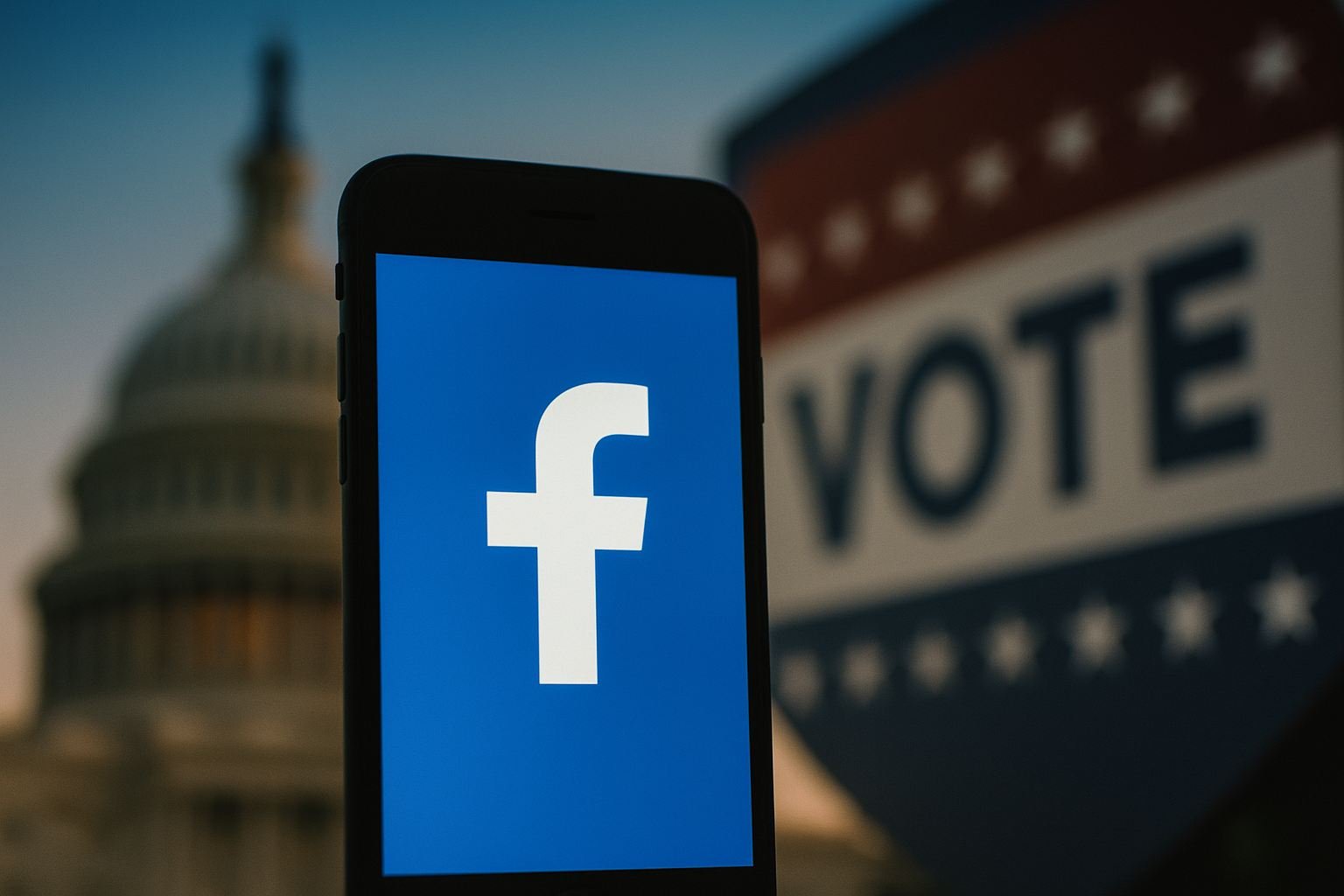Inside the story of how social media turned from a tool of connection into a powerful weapon of political influence — and what it reveals about the age of data-driven persuasion.
- From “connecting people” to influencing votes
- The rise of data-driven campaigns
- The Cambridge Analytica connection
- How social media algorithms amplify persuasion
- Data, democracy, and the illusion of choice
- Regulatory reactions and corporate reforms
- The evolution of political advertising after Cambridge Analytica
- How citizens can regain control
- What the future holds
From “connecting people” to influencing votes
When Facebook was created in 2004, its mission was simple: to connect people.
Over the next decade, it became a global platform where billions shared photos, opinions, and personal moments.
But as the platform’s algorithms evolved and advertisers gained access to sophisticated targeting tools, Facebook transformed into one of the most influential political communication channels in history.
What began as an experiment in social networking became a massive marketplace for attention and influence.
The ability to reach voters directly, bypassing traditional media filters, changed how political campaigns were designed, funded, and measured.
The rise of data-driven campaigns
By the early 2010s, political strategists had discovered the gold mine hidden in Facebook’s vast ocean of data.
Every like, share, and comment revealed pieces of a psychological puzzle — a map of preferences, fears, and hopes.
Campaigns began using machine learning to analyze these patterns, identifying undecided voters and tailoring messages designed to sway them.
Instead of broadcasting a single message to millions, data allowed campaigns to whisper personalized stories to each individual.
This shift from mass persuasion to micro-persuasion would redefine political communication forever.
The Cambridge Analytica connection
The turning point came with Cambridge Analytica, which promised to merge behavioral science with digital advertising.
The company’s approach relied on psychographic profiling — classifying people not just by demographics but by personality traits such as openness, extraversion, and neuroticism.
These insights, derived from seemingly innocent quizzes, were then used to design highly emotional political ads.
The result was a new type of political marketing: invisible, adaptive, and emotionally charged.
In 2016, these methods were reportedly deployed in major elections and referendums, sparking global debates on data ethics, democracy, and privacy.
How social media algorithms amplify persuasion
The power of platforms like Facebook lies not only in their data but in their algorithms.
These algorithms decide what content users see, based on engagement signals — what you click, linger on, or react to.
Over time, the system learns to show more of what triggers strong emotions, creating echo chambers where users are exposed mainly to confirming opinions.
This feedback loop amplifies polarization and makes people more receptive to targeted political messages.
A campaign doesn’t need to change your vote directly; it just needs to shape what you see, how you feel, and whether you show up to vote at all.
Data, democracy, and the illusion of choice
One of the most disturbing lessons from the Facebook–Cambridge Analytica saga is how easily democratic processes can be influenced through subtle data manipulation.
Personalized feeds create the illusion of autonomy, while in reality, each user’s perception of truth is curated by algorithms optimized for engagement — not accuracy.
When political advertising blends seamlessly with memes, videos, and everyday posts, the line between information and manipulation blurs.
The challenge for modern democracies is to ensure transparency and accountability in an ecosystem designed to monetize emotion.
Regulatory reactions and corporate reforms
Following the revelations of 2018, Facebook faced investigations, public hearings, and record fines.
Governments worldwide introduced stricter data protection laws, such as the General Data Protection Regulation (GDPR) in Europe.
Facebook (now Meta) announced a series of reforms: restricting third-party data access, labeling political ads, and offering transparency tools for campaign spending.
Yet, critics argue these changes came too late. The fundamental model — using personal data to predict and influence behavior — remains intact.
The question is not whether social media should be regulated, but how far regulation can go without undermining freedom of expression and innovation.
The evolution of political advertising after Cambridge Analytica
Today, political campaigns have become digital-first operations.
Teams of data scientists, behavioral analysts, and social media strategists monitor voter sentiment in real time.
Artificial intelligence tools can generate personalized video ads, adjust tone and visuals dynamically, and test thousands of versions before launch.
Even without scandals, the capacity to influence voters through emotional precision has grown exponentially.
As deep learning advances, the line between persuasion and manipulation becomes increasingly difficult to define.
How citizens can regain control
- Stay informed about how political advertising works on social media platforms.
- Inspect ad libraries provided by Facebook, Google, or TikTok to see who funds political ads in your region.
- Limit data exposure by reviewing privacy settings and reducing third-party app access.
- Diversify news sources to break free from algorithmic echo chambers.
- Support transparency initiatives that demand disclosure of targeting criteria in political ads.
What the future holds
As we enter an era dominated by artificial intelligence, personalized algorithms, and virtual influencers, the lessons of Cambridge Analytica remain urgent.
Technology is neither inherently good nor bad — it reflects the intentions of those who design and deploy it.
The same tools that can engage voters and foster participation can also mislead and divide.
The future of democracy will depend not just on laws, but on the digital literacy of its citizens and the ethical standards of the platforms they use.
Understanding how data flows, how attention is monetized, and how persuasion works is now a civic responsibility.
Bottom line: Facebook’s role in elections revealed that data is the new political currency.
The scandal did not end with Cambridge Analytica — it marked the beginning of a new era where democracy itself must adapt to the logic of the algorithm.







